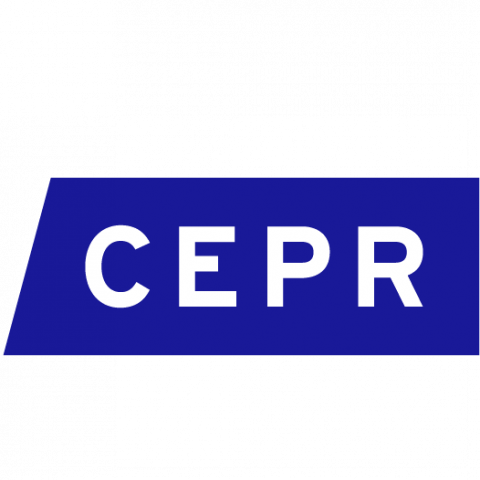
Here’s the research and opinion I have been reading on the research to policy pipeline
How does academic research currently influence policy? How should it? How can researchers increase the policy impact of their research? What research has the most impact? How can policymakers use research to inform policy? What are the right questions for policymakers to ask researchers?
These are the types of questions that we spend a lot of time thinking about at VoxDev. We hope to be part of the solution to the current gap between research and policy, but the evidence base itself on fostering evidence-based policymaking (from both the perspective of researchers and policymakers) is small.
There have been a number of excellent recent posts on this topic, and VoxDev has featured some of the early academic research exploring these questions, so I thought it would be useful to collect this work by researchers, practitioners and policymakers in one place. I plan to update this post over time, so please let me know ([email protected]) if I have missed anything (old or new).
I start by highlighting specific academic studies on this topic, before going through some of the blogs and discussions I have found particularly insightful on this issue.
Academic research featured at VoxDev
- How much do political leaders value academic research? Can this research change not only their beliefs, but also the policies they implement? In this podcast, Diana Moreira discusses evidence on the impact of evidence briefings for Brazilian mayors.
- In this article, Stefan Dercon outlines evidence from the UK civil service and the World Bank that shows public servants make errors when interpreting data, incorrectly concluding that it aligns with their ideological preferences.
- This article analyses large-scale policy experimentation in China since the 1980s – Shaoda Wang and David Yang’s research finds that while China’s bureaucracy and institutions allow large-scale policy experimentation, incentives in complex political environments can inhibit policy learning.
- How does training policymakers in the concepts associated with the credibility revolution impact their beliefs and policy choices? In this article, Sultan Mehmood, Shaheen Naseer and Daniel L. Chen find that training in causal thinking can increase responsiveness to causal evidence, correct for mistakes in the belief-updating process and potentially raise welfare.
- I would really recommend checking out Eva Vivalt’s website, which features a section on the evidence-to-policy pipeline including Eva’s research with Aidan Coville and Sampada KC. Subscribe to our podcast feed to hear Eva discuss this work on an upcoming episode.
- Alix Bonargent’s job market paper – Can research with policymakers change the world? - looks at data on over 500 academic research projects and finds that those developed in partnership with policymakers are more likely to result in observed policy change. VoxDev article coming soon!
- This article is a more methodological look at how experiments can be more flexible. Maximilian Kasy and Anja Sautmann show that adaptive sampling can enable experiments to better meet policymakers’ learning goals
Other academic evidence (mostly from high-income countries)
- Evidence-based policymaking in the US and UK – Yu Uchiyama
- “This column takes stock of recent developments in this field in the US and the UK, and discusses the tension between evidence-based policymaking and democracy.”
- Bottlenecks for Evidence Adoption – Stefano DellaVigna, Woojin Kim and Elizabeth Linos
- Governments are increasingly using RCTs to test interventions before scaling them – how do they incorporate the results of experiments into policy-making?
- Understanding and Increasing Policymakers’ Sensitivity to Program Impact - Mattie Toma and Elizabeth Bell
- How do people assess the value of a programme when making funding decisions? How can decision aids help the decision-making process?
- Influencing Migration Policy and Public Debate through Targeted Communications – Helen Dempster
- Lessons for researchers and practitioners on what, who, how and when to engage – I would particularly recommend the “How to communicate research” section starting on page 4 that is full of useful insights for researchers across various fields
- Optimally generate policy-based evidence before scaling – John A. List
- “a common result is that, when we scale up ideas, most experience a ‘voltage drop’—that is, on scaling, the cost–benefit profile depreciates considerably. Here I argue that, to reduce voltage drops, we must optimally generate policy-based evidence. Optimality requires answering two crucial questions: what information should be generated and in what sequence.”
- Science cited in policy documents: Evidence from the Overton database - Zhichao Fang, Jonathan Dudek, Ed Noyons and Rodrigo Costas.
- “To reflect the extent to which science is cited in policy documents, this paper explores the presence of policy document citations for over 18 million Web of Science-indexed publications published between 2010 and 2019.”
Outside of the academic studies above, there has been a huge amount of insightful writing and advice from those with experience working at various stages of the research to policy pipeline.
General discussions on the VoxDev podcast
Recently, Stefan Dercon joined the podcast for a fascinating broader discussion on how economic researchers should give policy advice, highlighting the importance of accounting for policymakers’ constraints and improving research capacity. This was one of a series of podcasts we have released discussing the research to policy pipeline:
- In this earlier episode, Arianna Legovini discusses insights and lessons from her career putting research into practice at DIME (World Bank).
- In this episode of VoxDevTalks, we were joined by Zulfiqar Bhutta, one of the global leaders in implementing large-scale public health programmes in developing countries, who outlined key insights on using research in developing countries to shape global health policy.
- How can research help policymakers in Latin America and the Caribbean tackle economic challenges? Eric Parrado Herrera discussed how he puts research into practice at the Inter-American Development Bank.
Elsewhere
In this blog, Doug Elmendorf outlines five steps economists can take to improve the chance that policymakers listen. This recent paper by Andrew Leigh goes five better and outlines “ten principles to guide economists seeking to maximise their impact”.
More recently, Ranil Dissanayake, Janeen Madan Keller and Erin Collinson explore what the right questions to ask about development policy are in this blog – they highlight the importance of establishing "when - and under what circumstances - policymakers are receptive to evidence". Their post was responding to a list of open questions released by Open Philanthropy, which includes eight questions on “Science and Metascience”.
In the brilliant "An Africanist Perspective" blog, Ken Opalo has two recent posts focusing on this topic. In this blog, he “explores how we can best reap the fruits of the credibility revolution (with regard to both qualitative and quantitative works) to improve both the study and practice of policymaking in low-income states.” In this follow-up post, Ken makes the case for investing in context-specific policy research and implementation strategies, and highlights the importance of countries investing in their own policymaking capacity through locally-led research.
I would highly recommend watching the Policy Panel of the 2024 Nobel Symposium in Economic Sciences. There are too many insights to include here, but I wanted to focus on some of the points made by Ernest Aryeetey. Ernest highlights that while this debate is often divided into policymakers and researchers, this is too simplistic and ignores the different factions on each side – particularly on the research side which is made up of local and international actors. Relatedly, he outlines how impact does not just come from selling ideas to governments – focusing on the work by Chris Udry and IPA, he highlights that they had a lot of impact through capacity building. It’s not just doing research then presenting this to policymakers that is important, as the process of doing collaborative research which includes, or ideally is led by, local researchers builds capacity to do evidence-based policymaking.
In fact, while putting together this post, the Yale Economic Growth Center released a podcast on exactly this topic, with Chris Udry, Francis Annan and Rohini Pande discussing how researchers can form strong in-country partnerships to increase the relevance and impact of their work.
This blog post – The economic research policymakers actually need – was also released recently. Jed Kolko outlines what types of economic research he found helpful as a senior administration official.
Last year, Paddy Carter at BII reflected on communication between researchers and practitioners. In this post, he outlined how, from his perspective working at a DFI, practitioners could get more out of researchers.
This collection of links would be incomplete without including the amazing evidence to policy resources available on JPAL’s website. This page collects these into one place, and features a tonne of insights from their work leveraging evidence to inform policy.
I hope that this list is useful, and features insights/work that you had previously not come across. This is just a snapshot of what I have been reading on the topic, and I would love to hear if I have missed anything so that I can read it myself, and add a link to this blog.
Below I have included some other links to related work that I found interesting, but is less directly relevant to this topic.
Other related research and writing
- The policy world and academia offer widely different opportunities for early career researchers – Rachel Glennerster
- “Rachel Glennerster weighs up the differences between the policy world and academia for early career researchers looking at their options.”
- Missing evidence: tracking academic data use around the world – Brian Stacy, Lucas Kitzmueller, Daniel Gerszon Mahler, Umar Serajuddin & Xiaoyu Wang
- Academic research plays a major role in turning data into insights that inform policy – this blog/paper explores whether countries are getting the most from the data they produce
- The Cost of Knowledge: Academic Journal Pricing and Research Dissemination - Yonghong An, Michael Williams and Mo Xiao
- What are the impacts of the high prices of academic journals and restrictions on access to published research?
- The commercialisation of university research: The role of people versus place
- “This column analyses the process of translating cutting-edge research into commercial activity”
- This policy brief by Shagufta Ahmed, Gopi Shah Goda, Michelle Hahn, and Preeti Hehmeyer focuses on the US and provides a series of recommendations to improve academic engagement in policies influences by federal regulations
- Literature Reviews and Innovation – Matt Clancy
- What do we really know about the effects of literature reviews on science and innovation?

